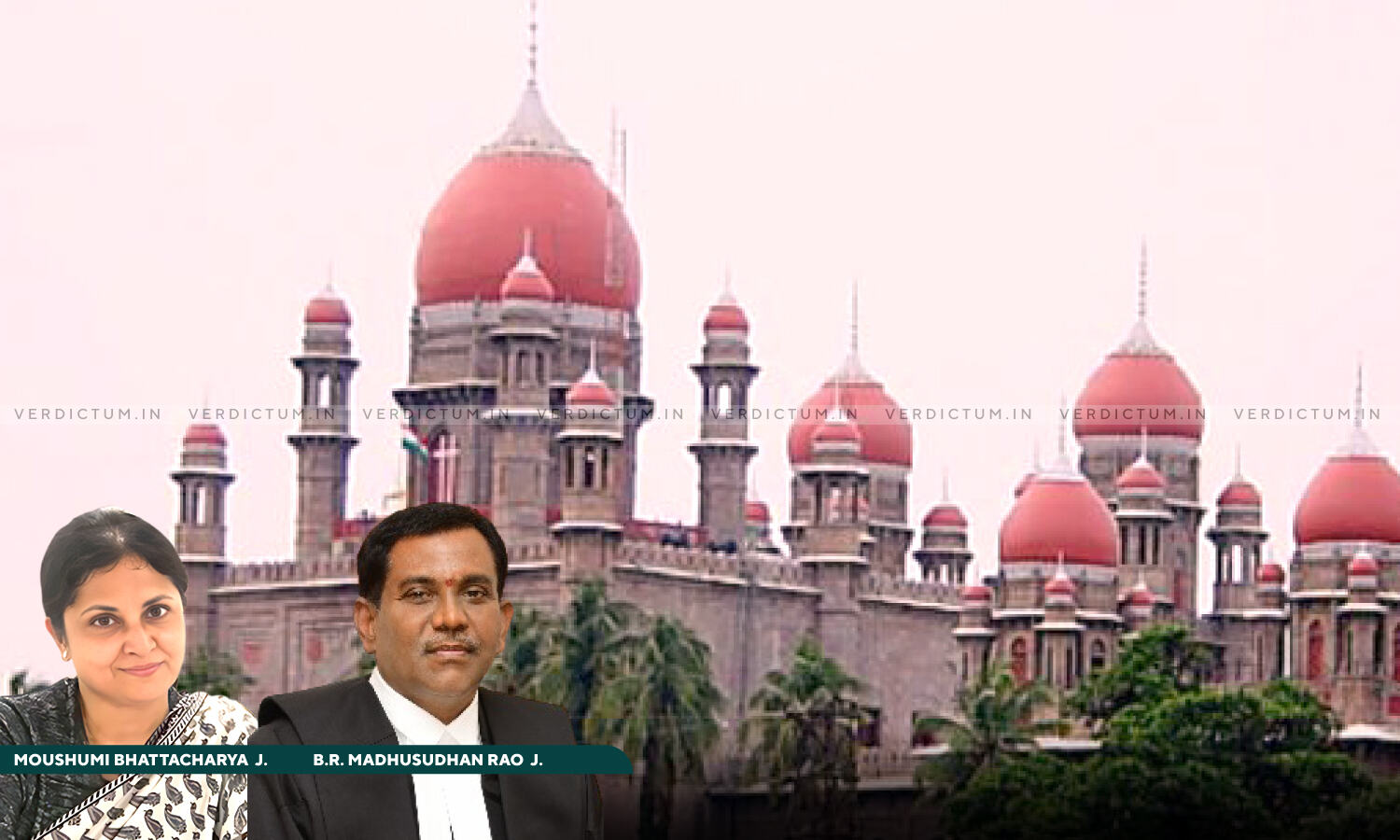Failure To Inform About Short Closure Of Contract, Despite Being Privy To The same, Amounts To Disablement Of Performance U/S. 39 Contract Act: Telangana High Court

The Telangana High Court has observed that the party’s failure to inform about the short closure of the contract at the relevant time, despite being privy to the same, amounts to disablement of performance as contemplated under section 39 of the Indian Contract Act, 1872.
The appeal before the High Court was filed under section 37(1)(b) of The Arbitration and Conciliation Act, 1996, against an order passed by the Commercial Court dismissing the appellant’s petition filed under section 34 of the 1996 Act for setting aside an Award.
The Division Bench of Justice Moushumi Bhattacharya and Justice B.R. Madhusudhan Rao explained, “The appellant’s failure to inform the respondent of shortclosure of the contract at the relevant time, despite being privy to the same, amounts to disablement of performance as contemplated under section 39 of the 1872 Act. In other words, once the contract between the GPL and the appellant was closed on 26.10.2013, the appellant as the promisor, had an obligation to communicate this fact to the respondent, namely, that the appellant was disabled from performing its promise in its entirety.”
Highlighting the role of the Arbitral Tribunal in such matters, it further said, “It is imperative that the Arbitral Tribunal be allowed a free play in the joints in its assessment of the facts and conclusions therefrom. A paralysis in its ability to arrive at well-considered decisions would be contrary to the object of the 1996 Act. A common business sense for arriving at broad estimates without granular accuracy is within the settled contours of the arbitral domain.
Senior Counsel Avinash Desai represented the Appellant while Senior Counsel Dama Seshadri represented the Respondent.
Factual Background
In June 2012, the Principal Employer issued a Tender Notification inviting bids for designs, engineering, supplies, erection, testing and commissioning of an External Coal Handling Plant for the construction of a Thermal Power Plant at Krishnapatnam. The appellant (M/s NCC Limited) and GPL were partners in a Joint Venture for the development of the said power plant. The appellant and the respondent/claimant (M/s. Elecon EPC Projects Limited) entered into a Consortium Agreement with the appellant as the lead partner.
The appellant released Rs 12 Crores as advance, and thereafter the balance amount, against which the respondent submitted a Bank Guarantee for Rs 15.48 Crores and started the work. In 2014, GPL awarded the same scope of work to M/s.Macmet India Limited, although the contract awarded to the respondent was not expressly terminated. The appellant invoked the Advance Bank Guarantee of Rs 15,48,56,900, which led the respondent to file petitions under section 9 of the 1996 Act before the District Court claiming Rs 101,68,18,000 from the appellant.
The Award was passed in favour of the respondent for an amount of Rs. 5,09,49,625 and Rs. 5 Crores towards damages. The appellant’s petition for setting aside the Award was dismissed by the Commercial Court (impugned order) leading to the present Appeal.
Reasoning
The Bench, at the outset, clarified that the Indian Contract Act, 1872, does not define the word ‘breach’ as a standalone act or omission. Sections 73 and 74 of the Act ensure compensation as a consequence of a breach. On a perusal of the facts, the Bench noted that the appellant indisputably benefited from the work done by the respondent/claimant but suppressed the fact of short-closure keeping the respondent in the dark. The appellant, on the other hand, did not suffer any loss, which would be evident from the appellant not filing any counterclaim in the arbitration for damages.
“Opportunity costs, as a consequential damage, is a remedy to which every business person is entitled in commercial contracts. The expectation aligns with the doctrine of business prudence and the primary objective of a person to enter into commercial transactions with another”, the Bench said.
The award of Rs 5 Crore was also assessed against the respondent’s claim of 18.30 Crores, which approximately represented 10% of the total project cost of 183 Crores. The Tribunal employed Hudson’s formula (without specifically naming it), which, as per the Bench, is recognised as a fail-safe methodology for assessing damages for loss of profit in major contracts arising from competitive tenders. The same has been judicially endorsed in McDermott International Inc Vs. Burn Standard Limited (2006). “Hence, the Arbitral Tribunal cannot be faulted for employing a formula for calculating just compensation to the respondent No.1 after recording its satisfaction that there had indeed been a material breach of the contract terms”, it added.
On a perusal of the facts of the case, the Bench found that the Arbitral Tribunal merely evened the scales of justice by awarding 5 Crore as loss of profits to the respondent for the balance work which the respondent could have performed had the contract not been short-closed. As per the Bench, the award of 5 Crores, which was less than 3% of the contract value couldn’t be termed as irrational or legally unsound.
The Bench further clarified that an appeal from a decision upholding an award calls for greater caution as the grounds for interference are restricted to absence of reasons, patent illegality or perversity. Noting that the appellant sought to segregate the Award of loss of profits from the other parts of the Award, the Bench held that the same would cause a chasm between the reasons and the underlying factual context.
“We do not find the impugned order passed by the Commercial Court on 30.03.2022 falling foul of any of the grounds on which the award would fail under section 34 of the Act”, the Bench said while dismissing the appeal and upholding the impugned order passed by the Commercial Court.
Cause Title: M/s. NCC Limited vs M/s. Elecon EPC Projects Limited (Case No.: COMCA No.29 of 2022)
Appearance:
Appellant: Senior Counsel Avinash Desai, Mohammed Omer Farooq
Respondent: Senior Counsel Dama Seshadri Naidu, Counsel K. V. Pavan Kumar



